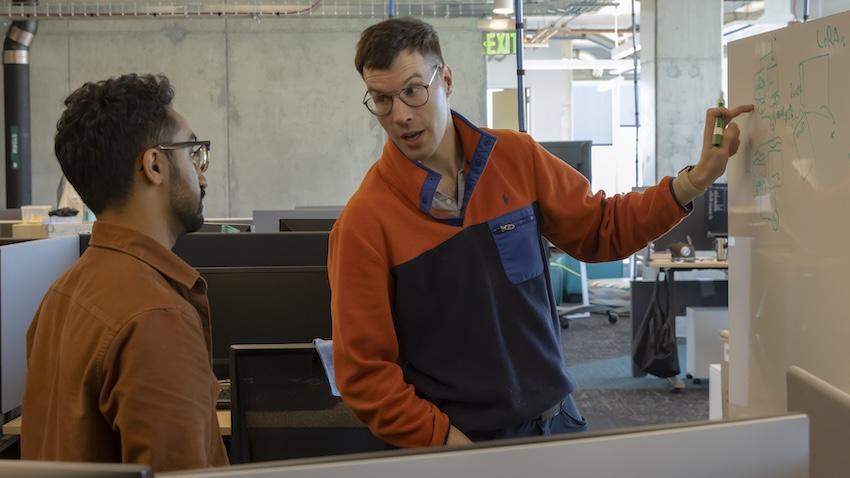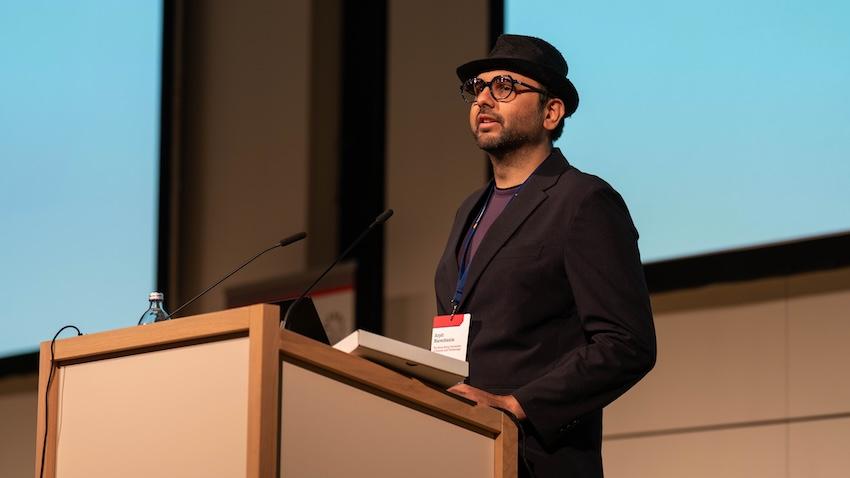
Lab Spotlight: Exploring What AI Can Teach Us About Human Cognition
Vijay Marupudi sees artificial intelligence (AI) as a gateway to better understanding the human mind.
But instead of exploring if an AI can think like a human, he’s more interested in what AI can tell scientists about human cognition.
That’s one reason he became a Ph.D. student in human-centered computing after obtaining his bachelor’s in psychology and neuroscience.
“One of the things I find interesting is when we have a model that demonstrates behavior that we consider to be intelligent, it’s the first time in history we can compare a non-human form of intelligence to a human one,” Marupudi said. “What is the nature of that intelligence? Is it like humans? If so, what does that tell us about humans?”
Marupudi is a member of the Cognitive Architecture Lab at Georgia Tech. Professor Sashank Varma of the School of Interactive Computing directs the lab. He and his students focus part of their research on the cognitive similarities between humans and language and vision models.
But instead of exploring if an AI can think like a human, he’s more interested in what AI can tell scientists about human cognition.
That’s one reason he became a Ph.D. student in human-centered computing after obtaining his bachelor’s in psychology and neuroscience.
“One of the things I find interesting is when we have a model that demonstrates behavior that we consider to be intelligent, it’s the first time in history we can compare a non-human form of intelligence to a human one,” Marupudi said. “What is the nature of that intelligence? Is it like humans? If so, what does that tell us about humans?”
Marupudi is a member of the Cognitive Architecture Lab at Georgia Tech. Professor Sashank Varma of the School of Interactive Computing directs the lab. He and his students focus part of their research on the cognitive similarities between humans and language and vision models.


